This post may contain affiliate links. Please read our disclosure policy.
This Poached Pear Pavlova combines two of my favorite desserts! The individual pavlovas are crunchy on the outside and soft, pillows on the inside. They pair perfectly with the red wine poached pears!
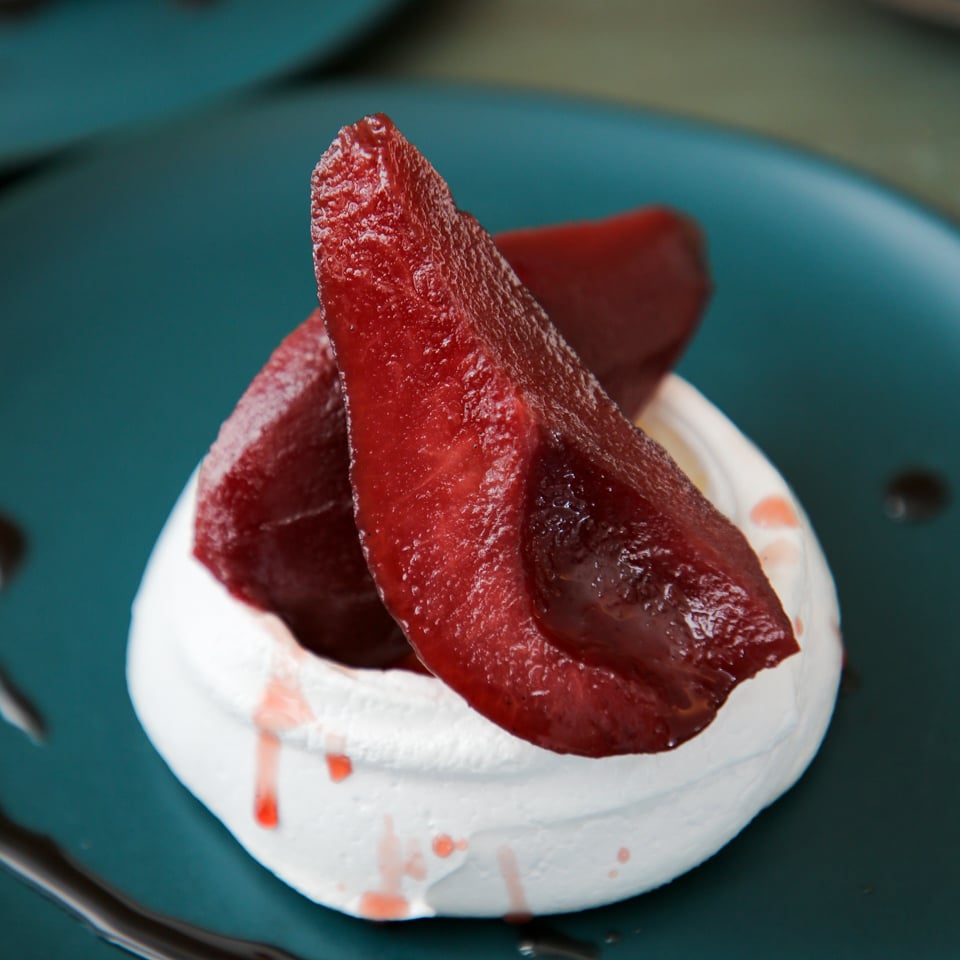
Red wine poached pears + creamy, crunchy meringue = perfection
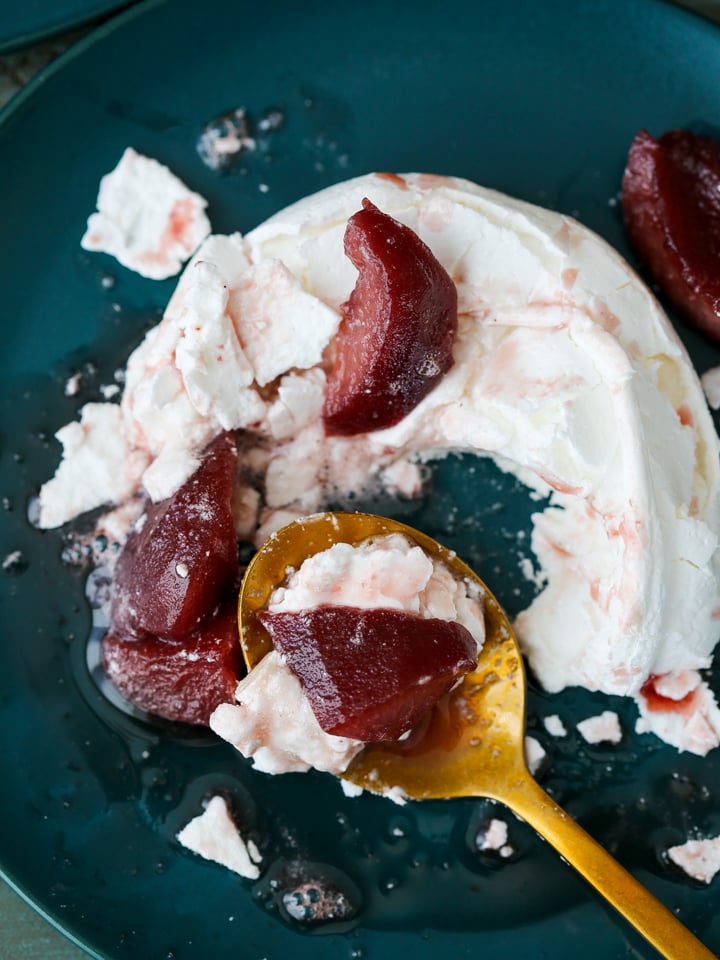
IMO, albeit professional opinion. ?
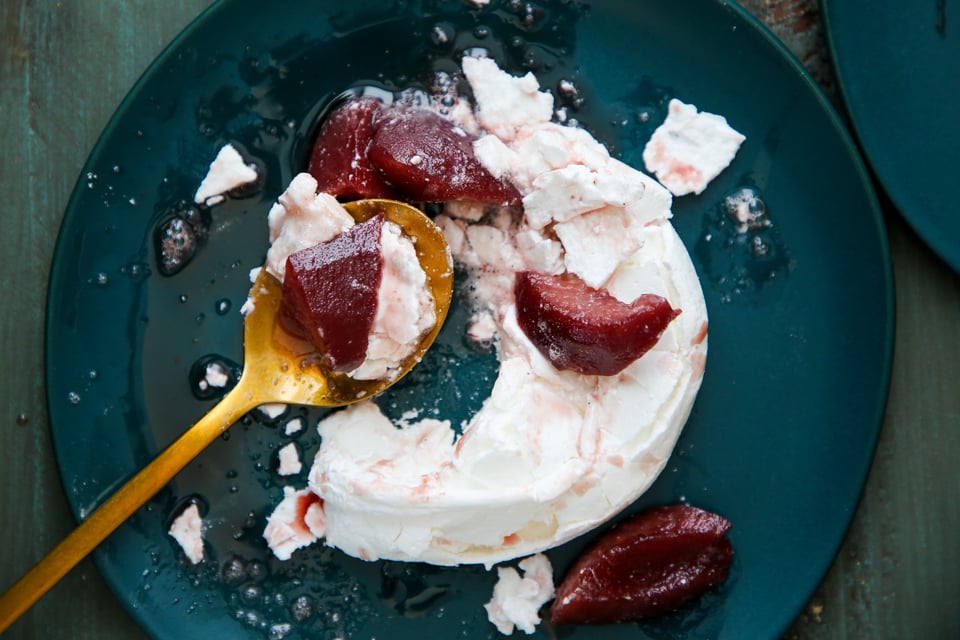
I am also biased towards pavlovas. My pav obsession is well documented with this lemon berry pavlova cake.
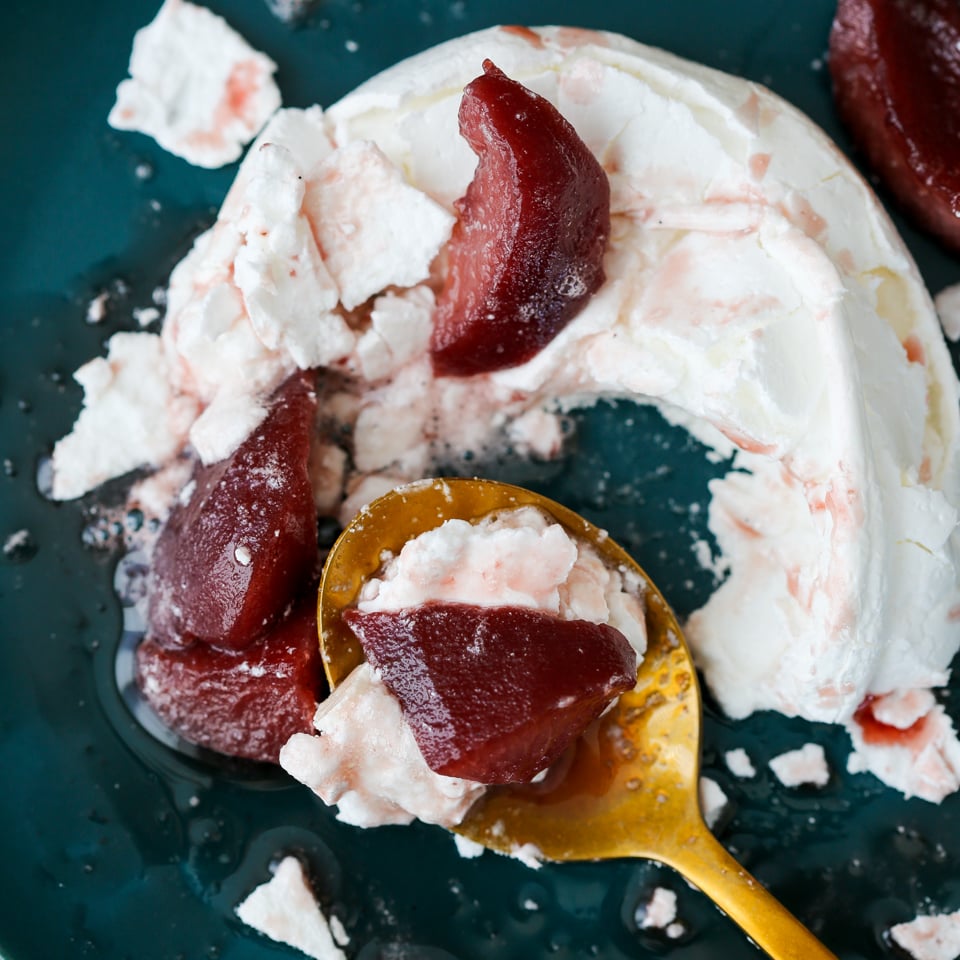
You could add a lemon curd whipped cream or scoop of caramel ice cream to this poached pear pavlova.
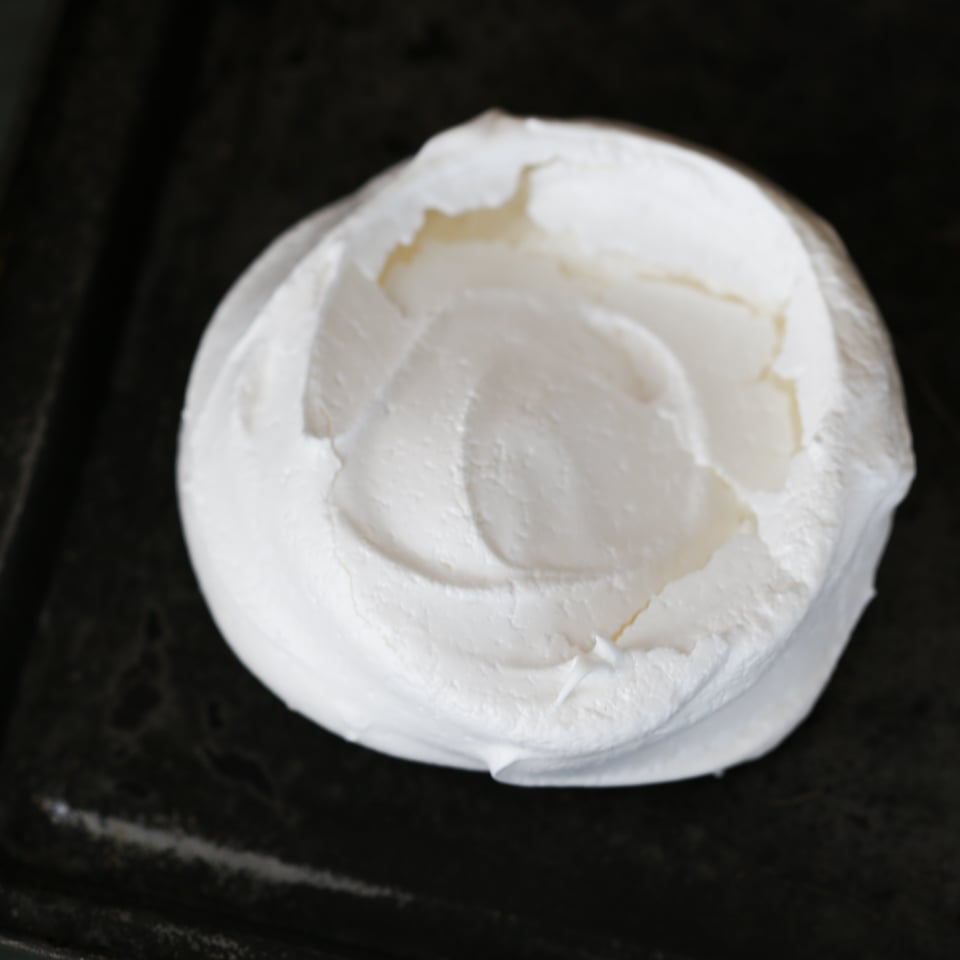
Tools for Poached Pear Pavlova Success:
- Egg Whites: Eggs separate easier when they are cold and the one thing that matters most here is that there aren’t any yolks in your whites. That little bit of fat can keep them from whipping up to their full potential. You don’t have to get all crazy and wipe down the bowl with vinegar or anything…it’s not that serious…but take the time to separate your whites carefully. I like to separate over three different bowls. The yolks go in one, the newly separated white in one and then I pour the new whites into a third bowl after several eggs. Trust me when I tell you that having a broken yolk drop into your quart of perfect whites is pure sadness.
- Sugar: There is much debate about when to add the sugar to a meringue. I am in the earlier rather than later camp. It’s not the most popular camp but I live here now. I feel that adding the sugar after the whites have already whipped leads to the sugar crystals not dissolving into the egg whites and then the sugar has a tendency to overcook and pour out like lava.
- Cream of Tartar: I like to stabilize my egg whites for meringue in general and pavlovas are no different especially if you are going to pipe them or do something fancy. The ratio of sugar to egg whites also adds stability.
- Distilled White Vinegar: This is a sneaky addition but very important. The vinegar also adds a bit of stability but mainly it helps keep the meringue white while baking! Super-secret professional tip right there.
- Cornstarch: Another pro-tip. Cornstarch helps the meringue dry out. You can think of it as extra insurance to get that crispy outside without having to overbake.
- Baking: The perfectly baked pavlova needs the right balance of baking time with heat and the right amount of time just sitting in the oven that is still warm. Too much baking time and you will have all crisp and no chew, but too little and you will have all squishy pillow and no crunch. Both are a tragedy. There is some wiggle room so don’t stress too much! Each oven is different, so careful and delicate testing are necessary.
- Whipping: The pavlovas need to be whipped to stiff peaks. This will take a little time especially if you start with cold egg whites. Don’t stress, don’t rush them, just wait patiently while they do their thing. If they still haven’t reached a nice volume or even soft peaks after 15 minutes, you might want to start separating more eggs. It looks like you have a sneaky bit of fat in your meringue that is keeping it from whipping. It really is important they hold a nice stiff peak or they won’t puff nicely in the oven and they might even spread out! If you overwhip the meringue, then they also won’t get as nice of a puff and they won’t have a nice smooth exterior. You’ll get this weird bumpy looking crust on the outside.
- Be Nice to your Meringue: Meringues are a delicate affair. Think of all those little air bubbles trapped inside the meringues structure. Don’t go banging them around or slamming oven doors. Give them the love they need to grow in the oven!
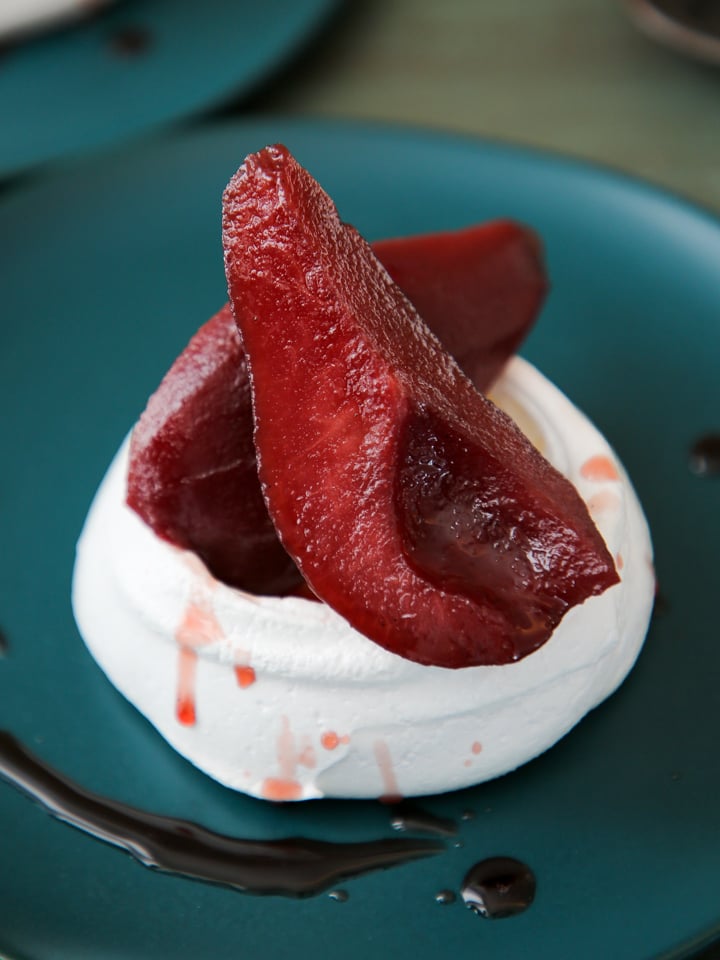
Umm you said pavlovas were easy but that was a lot?! Pavlovas are easy but if you want perfection (and you know I do), then these tips will give you a leg up. The good news is that no matter how you mess up the pavlovas, short of them not whipping up at all, they are still going to taste good. No one else is going to know…well, unless they read this post and then you are SOL.
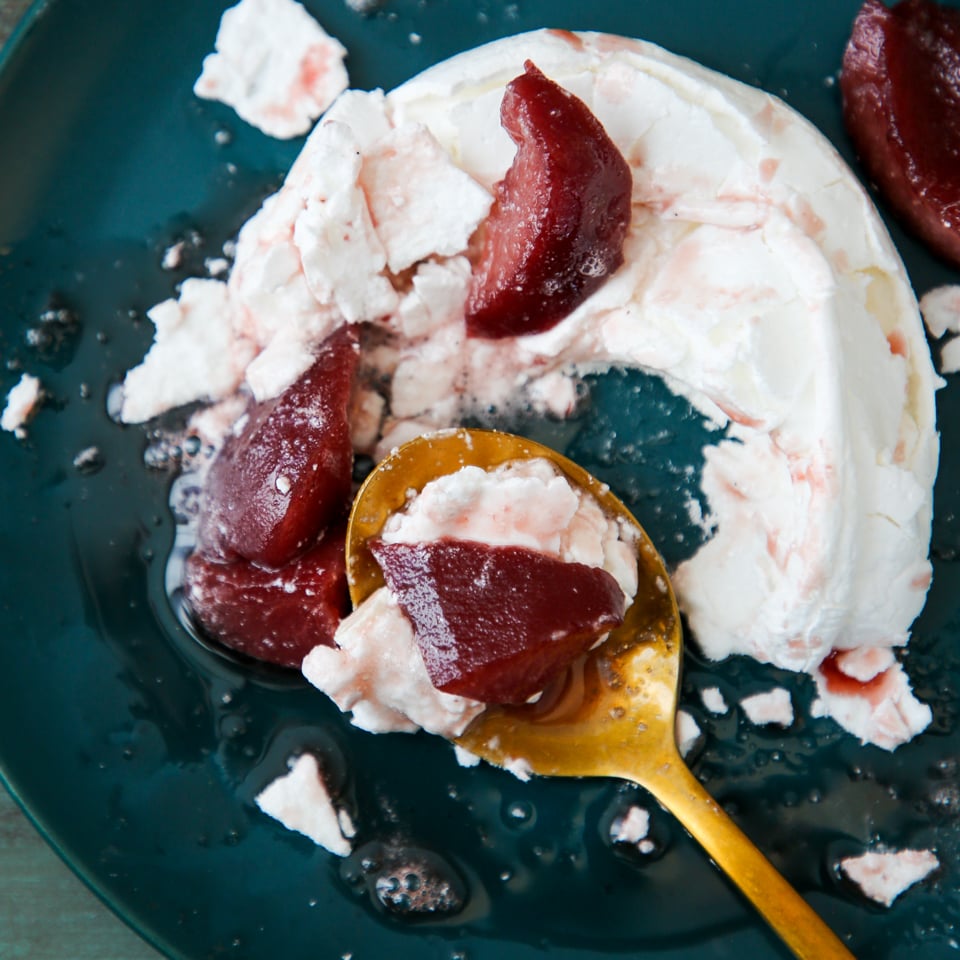
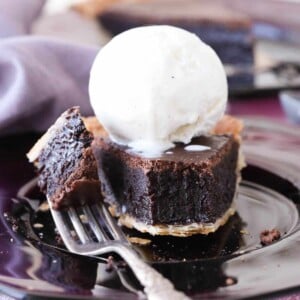
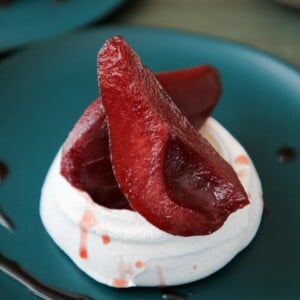
Poached Pear Pavlova Recipe
Ingredients
For the Pavlovas:
- 90 g Egg whites
- pinch Cream of tartar
- 130 g Sugar
- ½ teaspoon Vinegar
- 2 teaspoons Vanilla
- 1 teaspoon Cornstarch
Instructions
For the Pavlovas:
- Prepare a baking sheet with parchment paper or a non-stick liner (like a silpat)
- In the bowl of a stand mixer fitted with the whisk attachment, add your egg whites, vinegar and cream of tartar. Begin whisking on medium-low to break up the whites. When they start foaming, begin adding your sugar slowly. This is a lot of sugar so you are going to need to add more than you think at a time. Stop and scrape down your bowl because there are usually chunks of sugar stuck to the side.
- Once all the sugar has been added, turn the mixer up to high and allow it to whip until stiff peaks form. It will get very white and glossy.
- Reduce speed and add the vanilla. Turn the speed up to high once more just until the vanilla in incorporated. You don’t want to overwhip at the point.
- Stop the mixer, remove the bowl from the machine and tap the whisk gently against the side of the bowl to release the meringue trapped in the whisk. There is enough sugar to make this a very stable meringue but you still want to be moderately gently when tapping. Sif the cornstarch directly into the meringue. Fold in sifted cornstarch just until combined. You don’t want to over fold as every moment that passes and every time you agitate the meringue, it is falling. Not to sound too dramatic.
- Dollop meringue onto baking sheet about 3 inches apart because they will puff.
- Bake in an oven preheated to 200°F (convection ideally) for 40 minutes to an hour. It is done when you can gently touch the outside and it is firm. If it is still squishy, gently close the oven door and continue baking. The time will vary by the size and shape that you chose to make your pavlova.
- Turn off oven and let cool in oven for 1 hour. Remove and let it cool completely.
Nutrition
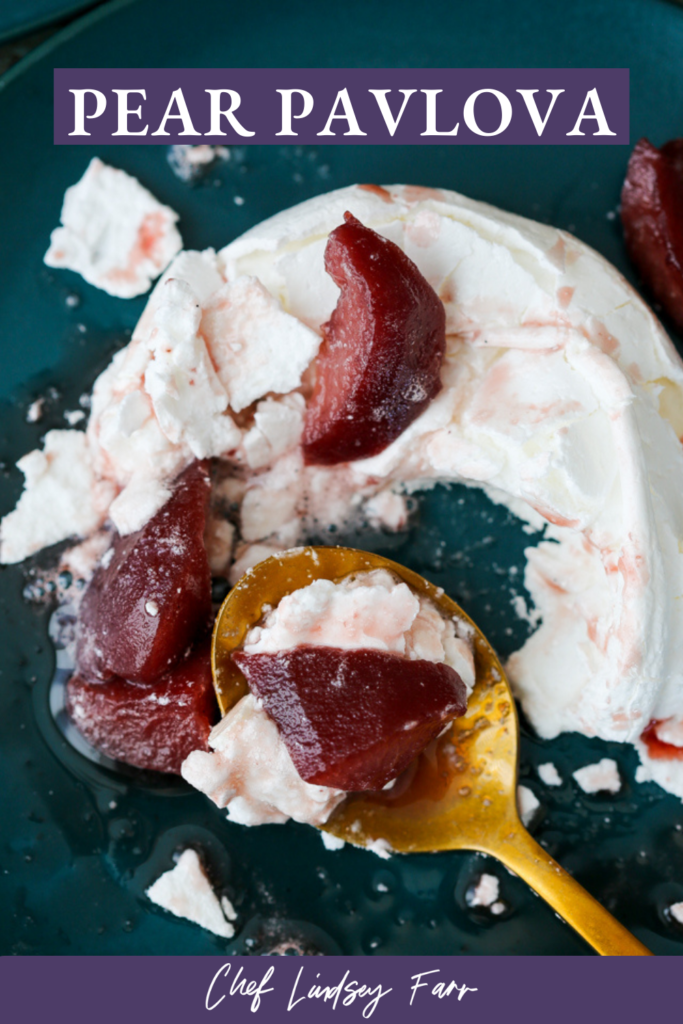
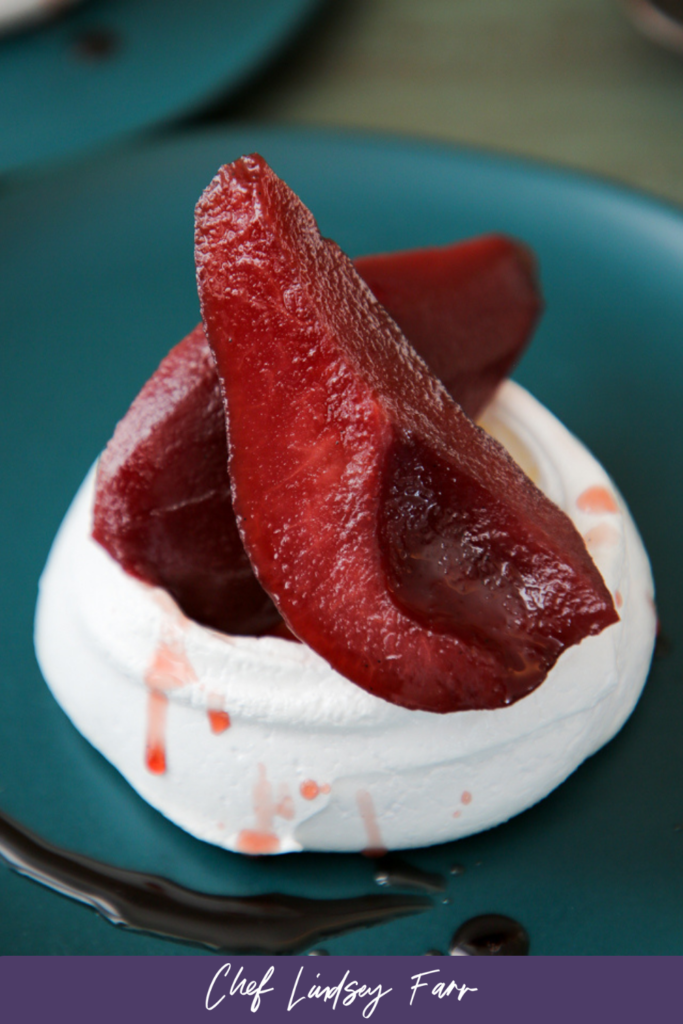
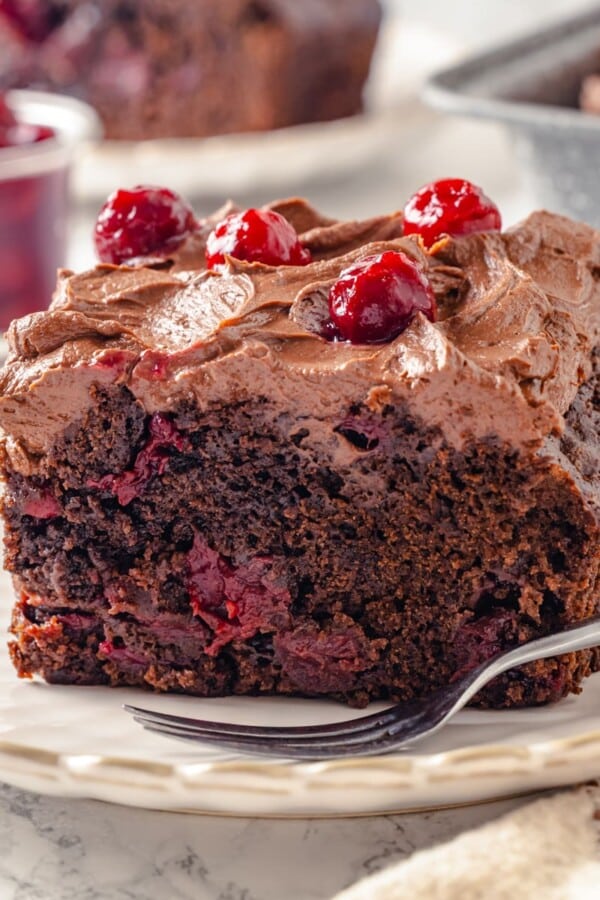
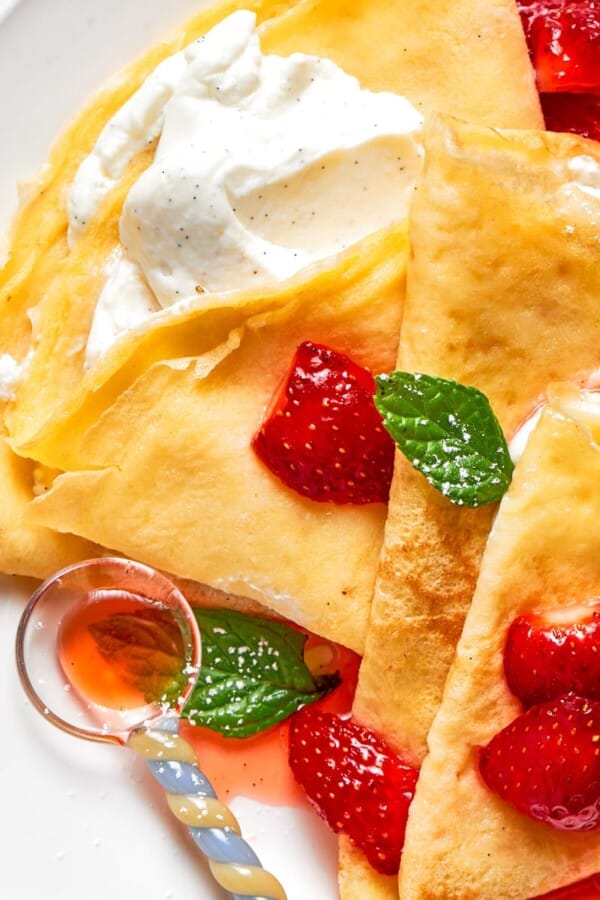
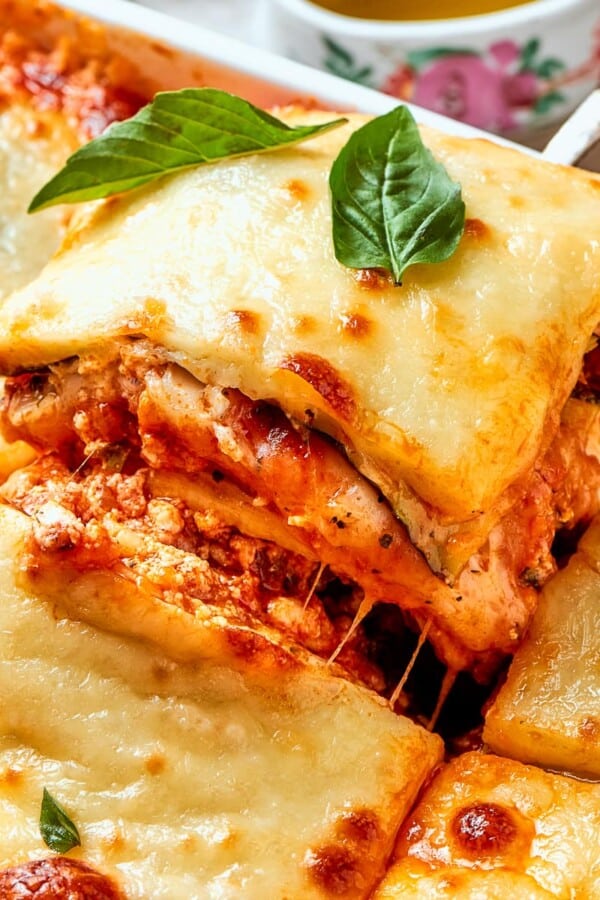
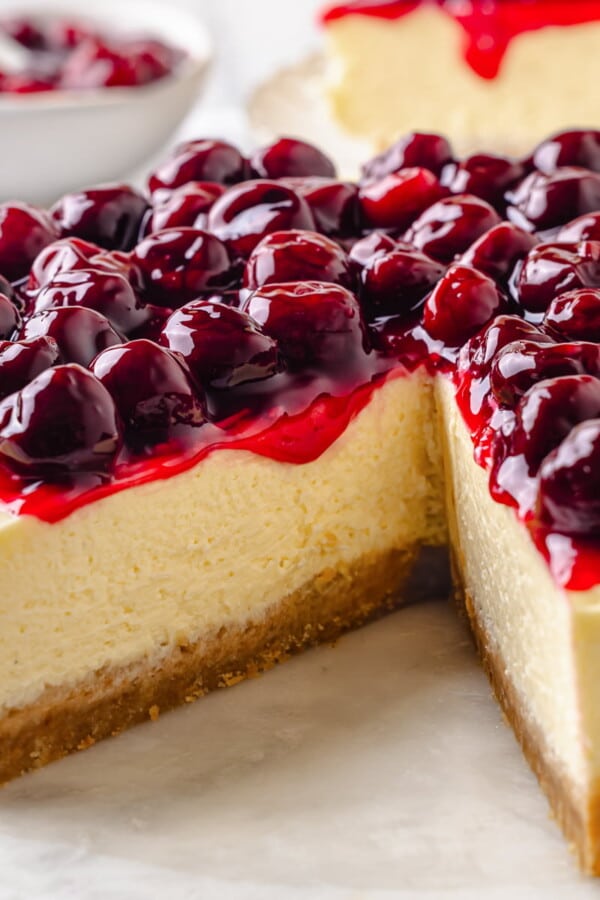








I was in the mood to try something a little different. Touching the outside to check for firmness was a great test. The pears made it feel extra special. Light but still satisfying, everyone at the dinner party commented on the texture.